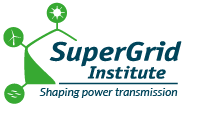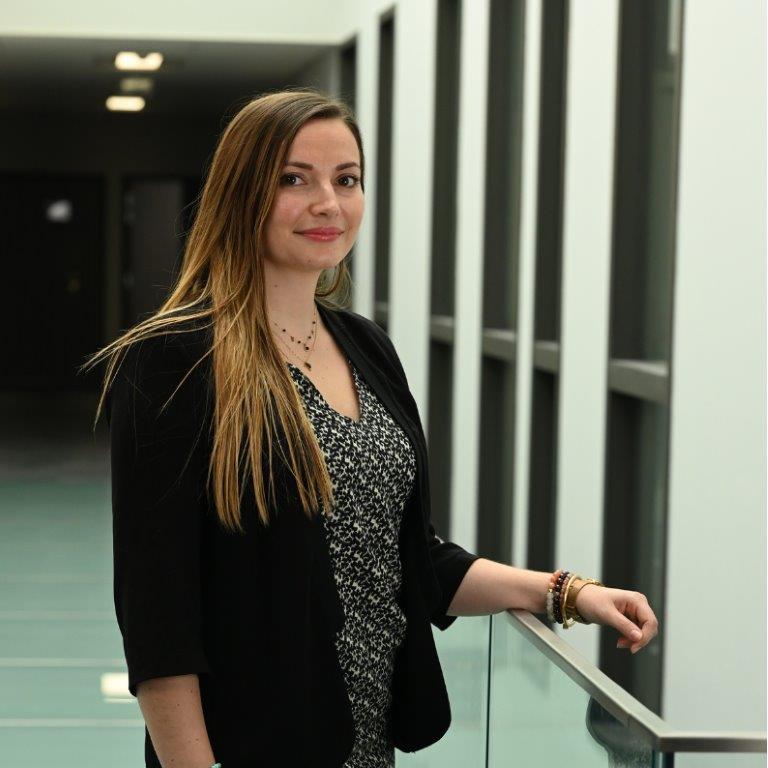SuperGrid Institute’s collaborative projects
Strengthening relationships: academia, industry and institutes
At SuperGrid Institute, collaboration is part of our DNA.
Our structure brings together industry and academia in collaborative projects which propel applied research forward and lead to industrial innovations that respond to market needs. National and European public bodies organise the frameworks for these collaborations and provide funding.
Thanks to our expertise and state-of-the-art testing facilities, we are increasingly recognised by our national and international partners for our ability to lead, innovate and deliver ideas and solutions.
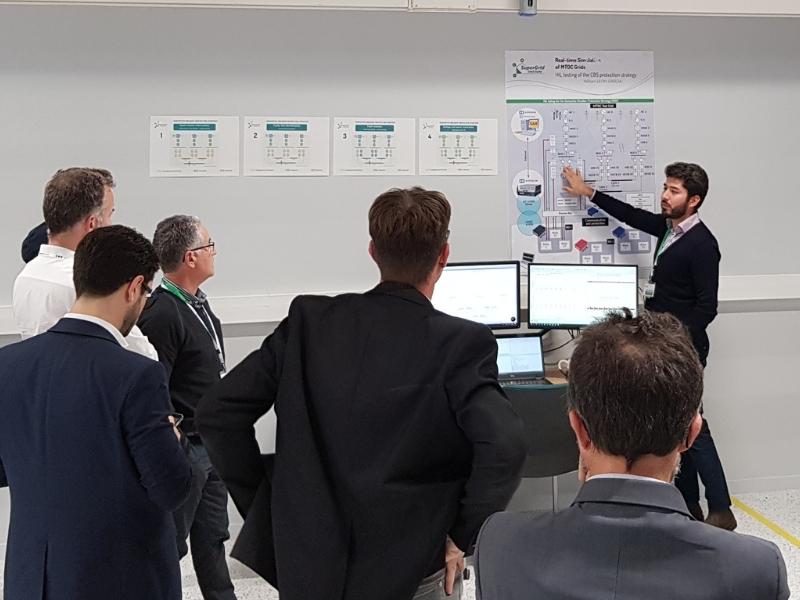
Ongoing projects
LOLABAT
LOLABAT focuses on developing and validating new generations of batteries for stationary applications (e.g., renewable energy storage). The project’s aim is to develop a reliable, safe and low-cost nickel-zinc rechargeable battery as an alternative to lithium-ion batteries, the current leader on the market.
SuperGrid Institute is leading the work to demonstrate the potential of this technology within different applications and how it can increase network flexibility. We are also involved in the hybridisation of a hydraulic power plant, where we will validate the battery technology through simulation and testing on a reduced-scale model.
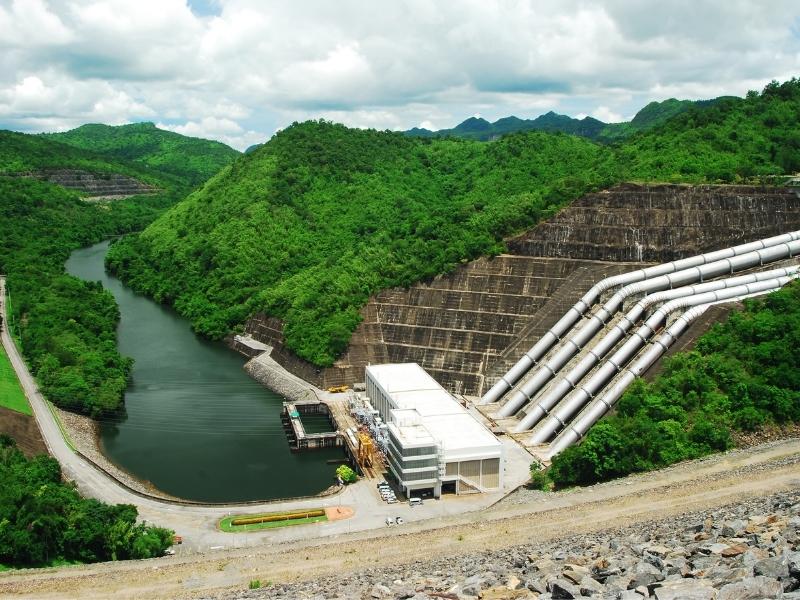
H2020 European R&I project
2021-2024
NETWORK DC
This project aims to create a DC network that connects multiple offshore wind farms within one DC hub, without the need for intermediate DC/AC and AC/DC conversion. The aim is to reduce the number of AC substations in coastal regions and to simplify the redistribution of generated power to other areas.
The Network DC project will work closely with regulators and potential direct current circuit breaker (DCCB) manufacturers to validate the technical requirements of DCCBs within future DC networks, and to establish an appropriate regulatory framework for this equipement. This will allow DCCBs to be integrated into any future network design in the UK.
SuperGrid Institute’s contribution to this consortium involves proposing a protection system design and conducting techno-economic evaluation of the onshore DC hub switching station.

UK – Ofgem’s Strategic Innovation Fund R&I project
2022-2022
HVDC-WISE
The HVDC-WISE project will foster the development of large HVDC-based transmission grid infrastructures to improve the resilience and reliability of existing transmission systems, facilitating the integration of large amounts of renewable energy.
SuperGrid Institute is not only the project coordinator. We also lead a work package to identify, assess and model emerging technologies for HVDC-based grid architectures, as well as activities around control and protection concepts for AC/DC architectures. These tasks will be carried out not only through offline simulations, but also through real-time and hardware-in-the-loop experiments using SuperGrid Institute’s test platform. We are also involved in several other tasks, notably the development of tools for techno-economic analyses and the design of the HVDC systems to be considered in the realistic test cases.

Horizon Europe R&I project
2022-2026
NEWGEN
The NEWGEN project aims to develop new insulation materials, cable manufacturing solutions, online condition monitoring technologies and comprehensive life and reliability modelling tools for the next-generation of extruded HVDC cables and cable systems, thereby improving the reliability and resilience of inter-connected European HVAC/-DC transmission grids.
SuperGrid Institute is involved in each of the project’s four technical work packages. Our main role is to carry out short-term dielectric characterisation of flat material specimens and prototype HVDC cable peelings, to characterise the dielectric properties of type A model cables and to develop an online leakage current measurement sensor for HVDC cables for the detection of pre-fault conditions.
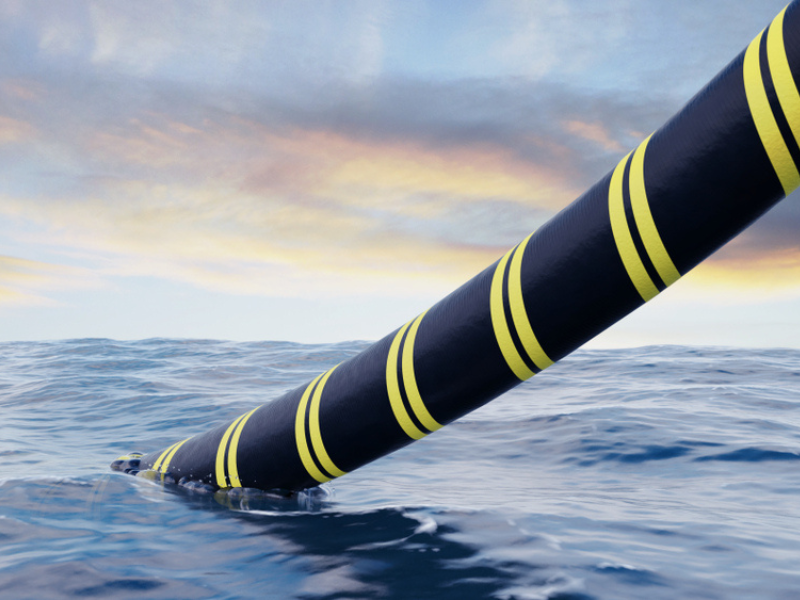
Horizon Europe R&I project
2022-2026
Offshore Energy Hub
By 2030, Danish CO2 emissions must be reduced to 70% of their 1990 level, with half of the reduction to be achieved within the current decade. By 2050, the target is climate neutrality. These ambitious targets will be achieved through the implementation of a range of measures such as the electrification of industry and the use of green fuels by Power-to-X (PtX), etc.
SuperGrid Institute’s contribution to this all-Danish consortium will be to offer a high level of expertise and knowledge of the energy-hub concept, which is crucial to facing the challenges of energy transition. The Institute will offer guidance on selecting optimum power system architectures to provide the right balance between needs, costs, performance, modularity and security. SuperGrid Institute’s contribution is part of the work package ‘Stable and resilient hub design’.
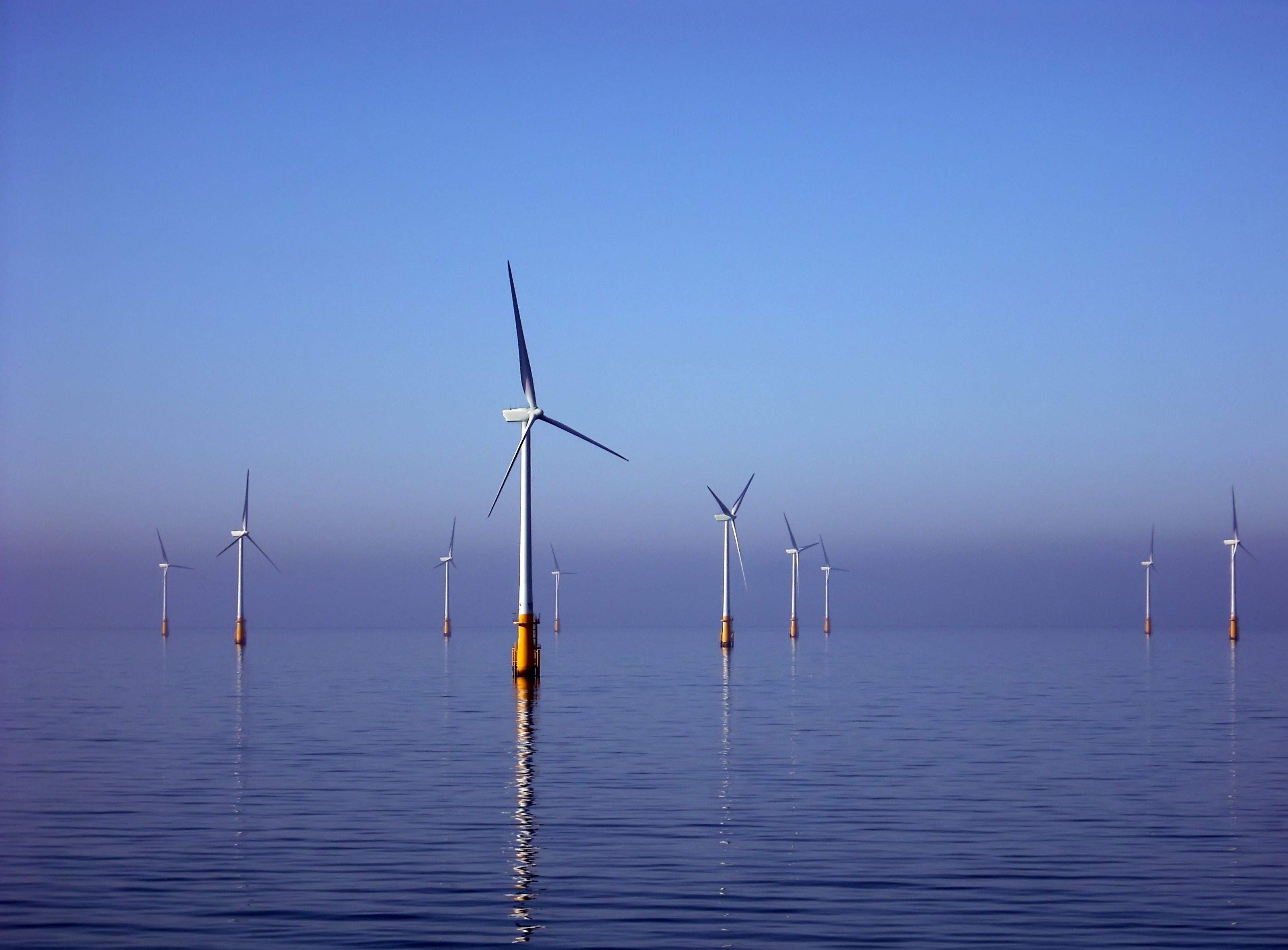
Denmark – EUDP R&I project
2022-2026
SCARLET
The SCARLET project (Superconducting cables for sustainable energy transition) unites 15 partners from 7 countries around the goal of designing and industrially manufacturing superconducting cables to enable more efficient and less costly power transmission from renewable electricity generation sites.
Within the SCARLET project, SuperGrid Institute contributes to several work packages, leading the work on electrical system architecture and protection, and delivering the Resistive Superconducting Fault Current Limiter module demonstrator. This involves demonstrating the module in limitation mode in subcooled liquid nitrogen inside the high voltage cryostat and using our high-power test platform to provide targeted DC fault current under the rated module voltage.
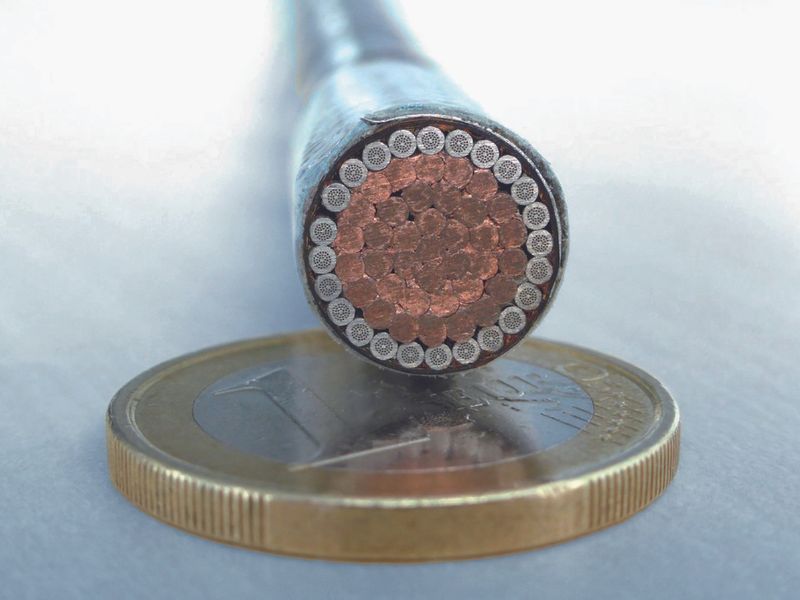
Horizon Europe R&I project
2022-2027
BILASURF
BILASURF brings together 10 European partners to reduce the environmental impact of surface functionalisation, by developing and integrating a process whereby complex 3D surfaces can be created using a high-rate laser.
This solution, which involves functionalising surfaces with a texture that mimics those found in nature, will reduce friction and improve the environmental footprint of industrial parts in hydraulic machines and industrial fans.
Our experts will assess the riblets’ influence on the hydraulic behaviour of a hydro turbine. We are also delighted to be leading a task on translating our demonstrator results into recommendations for full-scale turbines, to contribute to existing industry standards.
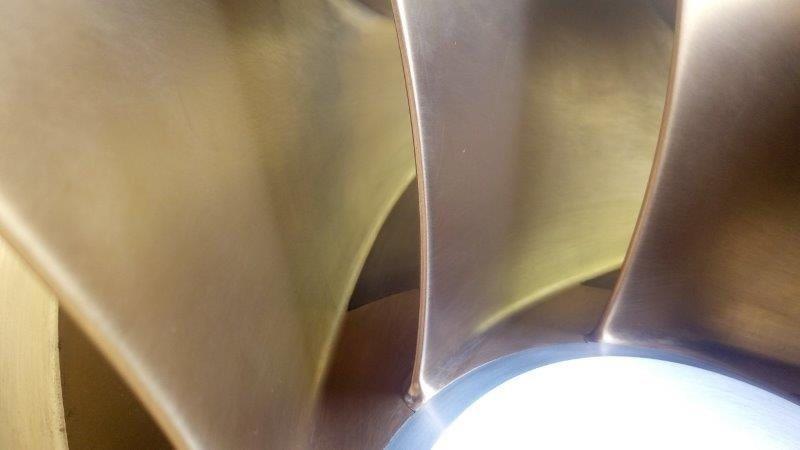
Horizon Europe R&I project
2023-2026
FOR²ENSICS
The aim of this project is to develop and demonstrate a commercial low-to-medium voltage bidirectional DC/DC converter prototype which can be introduced to the market within less than three years. To achieve this ambitious target, the project team focuses on the development of ultra-high voltage (UHV) SiC-based switching devices. This will make it possible to significantly simplify the converter topology and create a very compact design when coupled with high-frequency operation. The project involves the design, fabrication and testing of 15 kV SiC IGBT modules, as well as series connected SiC MOSFETs.
SuperGrid Institute participates in seven of the project’s eight work packages and leads two of them: Use Case and Requirements definition, and DC/DC Converter Demonstrator.
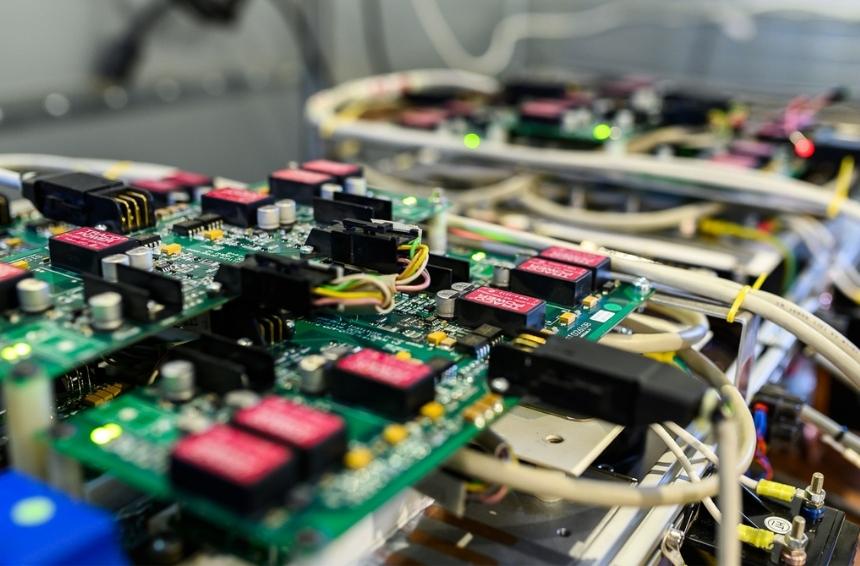
Horizon Europe R&I project
2023-2026
DCforEU
The Direct Current for European Union(DCforEU) project supports the European Commission’s Strategeic Energy Technology (SET) Plan. The project aims to promote the use and development of direct current (DC) technologies at high, medium and low voltages.
SuperGrid Institute is leading the project WP3, which focuses on identifying the key topics and actions required for the deployment of high voltage DC grids, as well as preparing for the use of medium and low-voltage DC systems in electricity distribution. The project aims to support the Implementation Working Group in delivering their part of the SET Plan, and to define the research and innovation requirements, as well as the proposals for the industrialisation and deployment of technology. This includes proposals for scaling up the industry to meet demand and help the EC achieve its net zero goals.

Horizon Europe R&I project
2023-2026
InterOPERA
The project “Enabling interoperability of multi-vendor HVDC grids”, funded by the EU programme for research and innovation, unites more than 20 European partners to define future interoperability standards for electricity grids.
InterOPERA’s main objective is to make future HVDC systems mutually compatible and interoperable by design, and to improve the grid forming capabilities of offshore and onshore converters. InterOPERA is not only about developing technical standards but also about agreeing on the procurement, commercial, legal and regulatory frameworks that will facilitate the tendering, building and operation of full-scale HVDC multi-terminal, multi-vendor, multi-purpose real-life applications anticipated by 2030.
SuperGrid Institute is the coordinator of the project and is involve in several work packages.
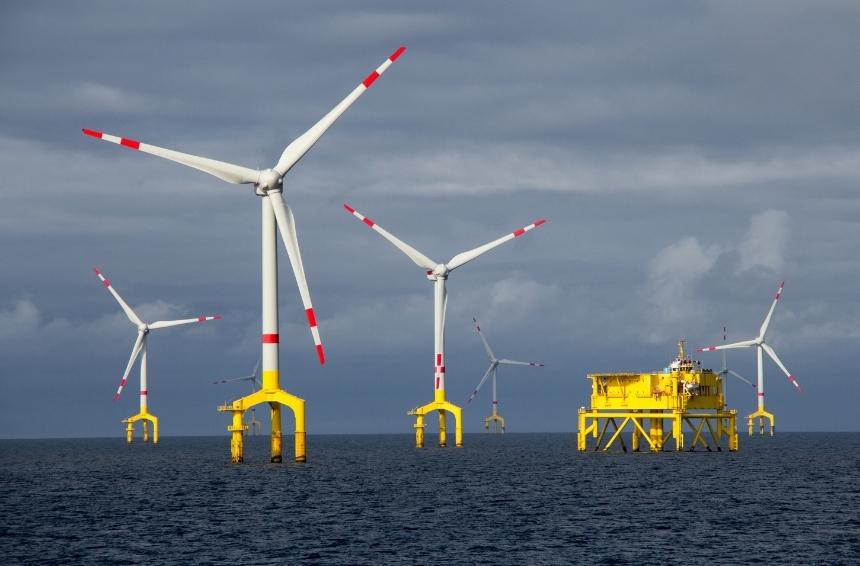
Horizon Europe R&I project
2023-2027
FLAGCHIP
The FLAGCHIP Project, brings together companies of all sizes and academic partners from eight different countries. The projet’s main objective is to develop new techniques for monitoring the ageing of Wide BandGap components, by measuring their internal temperature during operation. The project will also focus on designing innovative component structures and improving current packaging technologies to support the next generation of high-performance components. Ultra-wide Band Gap devices will also be used as they offer better performance.
SuperGrid Institute plays a key role in the project, contributing to almost all work packages and leading Work Package 5, which is dedicated to testing, validating, and demonstrating FLAGCHIP prototypes. This includes an AC power cycling bench that simulates ageing in components in order to study how they wear out and to validate monitoring systems. The second pilot is a bidirectional DC/DC converter (1.5 kV / 10 kV, 250 kW), which will be used to test the components under real-world conditions to confirm their reliable operation.

Horizon Europe R&I project
2024-2027
Hynet
The HYNET project aims to improve how renewable energy sources are connected to the existing electricity grid. It focuses on combining traditional alternating current (AC) systems with new technologies such as power electronics and smart control methods. The goal is to make the grid easier to manage and more secure, as well as better prepared for future challenges such as operating independently (islanding) or planning new investments.
SuperGrid Institute is contributing in two key areas: designing and planning high-voltage and medium-voltage direct current (HVDC and MVDC) networks. Their team will also create a detailed plan for future MVDC networks. This will include a technical and economic study of the feasibility of MVDC, as well as an overview of the key technologies that are making MVDC more viable.

Horizon Europe R&I project
2024-2027
GridForLoads
The GRID FOR LOADS project aims to explore the concept of turning certain types of electricity-using equipment into active participants in grid stability. These are known as “grid-forming loads.” The project will define this concept, choose suitable types of equipment, develop smart control systems for them, and apply these systems to real-world applications such as electric vehicle chargers and water pump drives. The project also study the potential technical, economic and environmental impacts of this approach on the energy system.
SuperGrid Institute will lead Work Package 3(WP3), which focuses on developing one or two demonstrators for the project. The aim is to test how grid-forming control can be applied to real equipment —in this case, a variable-speed pump. To achieve this, the SuperGrid Institute team will use their HydroPHIL test rig, a real-time hardware-in-the-loop system—to explore the idea of operating a small-scale variable-speed pump in grid-forming mode. This will enable them to test and validate the concept’s performance under realistic conditions.
In collaboration with the Universitat Politècnica de Catalunya, the team will develop and refine the control strategies needed to run the pump in grid-forming mode. First, they will build detailed models of the hydraulic system and the power converters to inform the setup process.
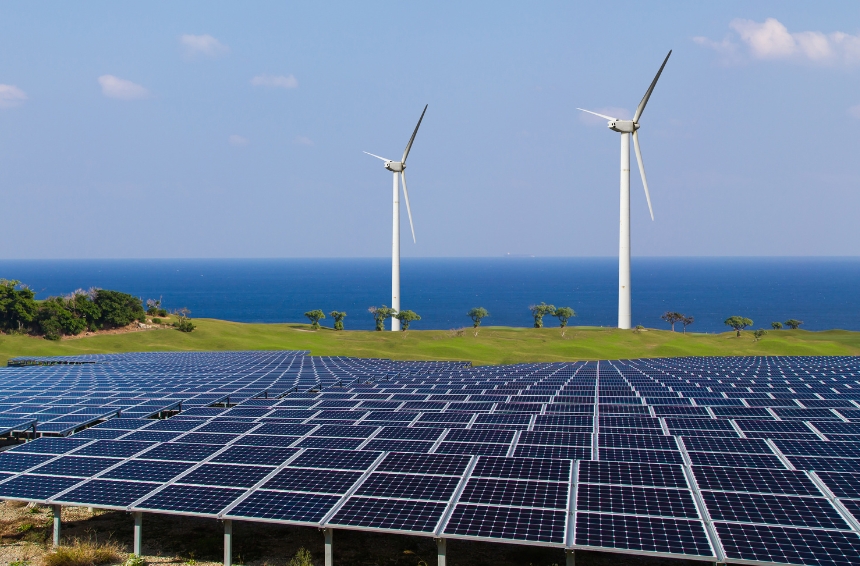
Horizon Europe R&I project
2025-2029
Our past projects
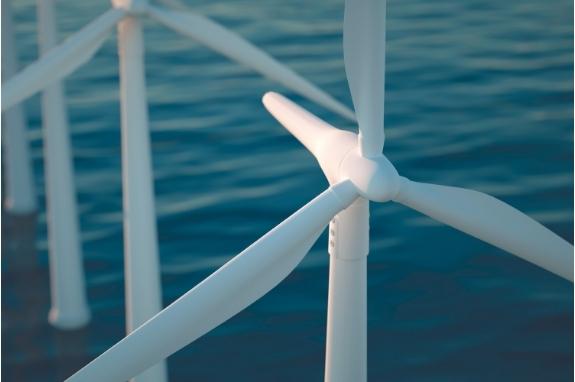
PROMOTioN
H2020 European R&I project
2016-2020
As part of the European Union’s Horizon 2020 programme, this project comprised several work packages with a common aim: developing meshed HVDC offshore grids to improve the integration of offshore renewable energy into electricity grids.
SuperGrid Institute’s contribution included developing pioneering fault-clearing-strategy proposals for meshed HVDC grids and providing demonstrations using Hardware-in-the-Loop (HIL) real-time simulation, as well as assessing the behaviour of partial discharges in SF6-free gas-insulated switchgear.
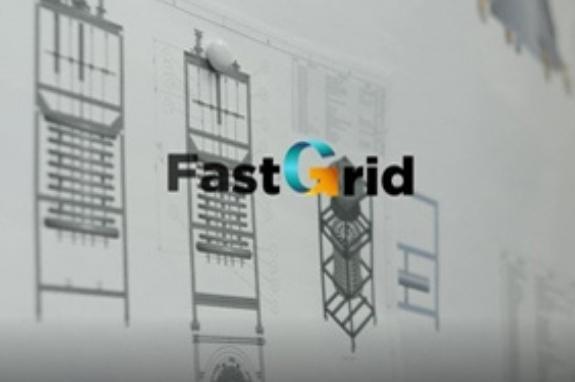
FASTGRID
H2020 European R&I project
2017-2020
This H2020 European R&I project brought together nine academic and three industrial partners for the development of a superconductive fault current limiter associated with a DC breaker to fulfil the requirements of a protection strategy for future HVDC networks.
SuperGrid Institute played a major role in this project, participating in the design of a prototype 50 kV fault current limiter and testing it under conditions representative of the operating environment of future multi-terminal HVDC networks.
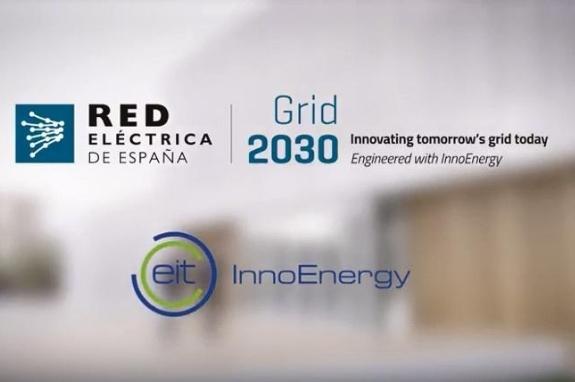
RITSE
Spain – Grid2030 Programme
2018-2020
With the support of Red Electrica de Espana (REE), SuperGrid Institute joined forces with IMDEA Energy to put forward the Reduced Inertia Transient Stability Enhancement (RITSE) project, which was selected from among more than 60 proposals by the Spanish transmission system operator.
The RITSE project, led by SuperGrid Institute, demonstrated how the transient stability of AC networks can be improved by coordinating the use of batteries and HVDC links. It proposed a new control structure for HVDC links, which shows great potential for enhancing the transient stability of the European power network.
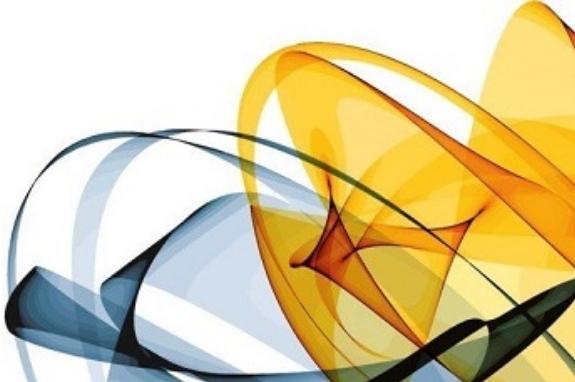
LISORE
France
2019-2020
This 15-month project brought together nine partners to explore the viability of innovative offshore substation solutions (floating or subsea) for the integration of offshore renewable energies into electricity grids. It also developed a technological roadmap for their deployment in future commercial projects.
SuperGrid Institute was involved in the techno-economic assessment of the solutions proposed and in identifying technological barriers.
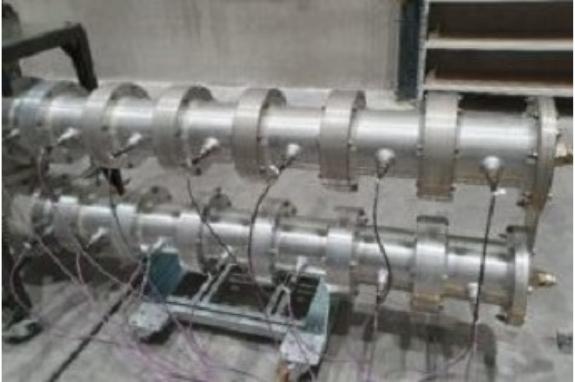
NanocompEIM 2
UK
2016-2019
The goal of this project was to develop nanocomposite-based electrical insulation materials to increase the operational performance of solid epoxy-based dielectrics. SuperGrid Institute led the work packages (WP) focused on: the design and deployment of test rigs for the performance assessment of nanomaterial-based insulating spacers (170 kV) within gas-insulated substations (WP3); and the mechanical and electrical characterisation of new formulated materials (WP4).
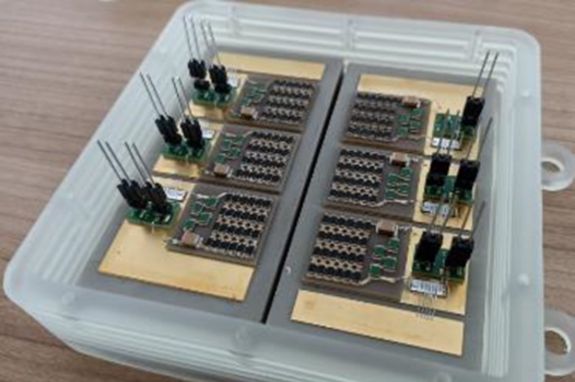
ARCHIVE
France- Germany
2019-2023
The ARCHIVE (ARchitectured Ceramic for HIgh Voltage power Electronics) project aimed to innovate power electronics module technologies by enabling the use of Silicon carbide (SiC) components up to 20 kV. It addressed both electrical insulation and thermal management.
The technical solutions researched by ARCHIVE were based on the use of an advanced ceramic substrate with specific geometrics and an innovative cooling approach which distributes the electrical insulation between the ceramic and the cooling fluid.
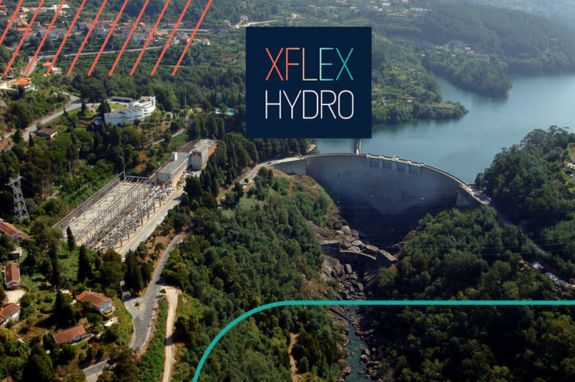
XFLEX HYDRO
H2020 European R&I project
2019-2023
With a consortium of 19 members, the XFLEX HYDRO project demonstrates how innovative hydropower technologies can ensure the safety and flexibility of the power system. SuperGrid Institute leads this work to illustrate the economic and socio-environmental benefits of hydropower technologies and provide guidelines for their deployment and operation.
Our Hydro Power-Hardware-in-the-Loop (HydroPHIL) test platform makes it possible to assess the behaviour of innovative and flexible solutions for the electrical system, driving the development of a mature technology.
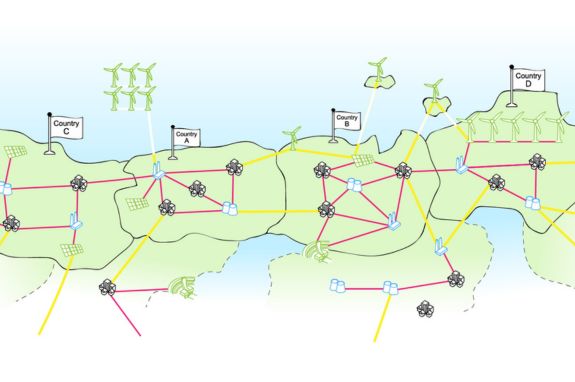
READY4DC
Horizon Europe R&I project
2022-2023
In a key step towards developing future multi-vendor DC electrical networks in Europe, the READY4DC project brung together a community of experts and created optimum conditions for them to discuss the implications of this process, both from a technical and a legal perspective.
SuperGrid Institute was leader of the first work package, focused on modelling, simulation frameworks and data sharing for multi-vendor HVDC interaction studies and large-scale EMT simulation.
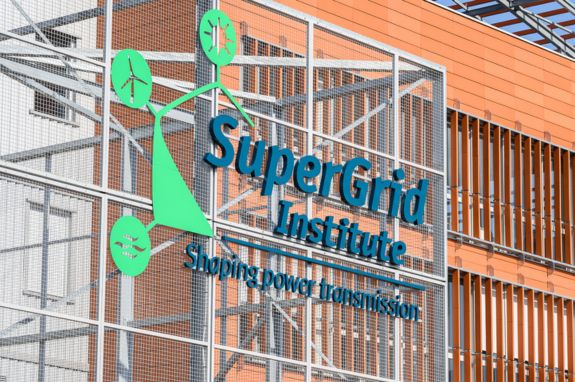
SiCRET
France
2020-2023
The Silicon Carbide Reliability Evaluation for Transport (SiCRET) project reunited ten members, headed by the IRT Saint Exupery Technological Research Institute. This two-year project assessed and benchmarks emerging SiC technologies, focusing on reliability (lifespan and robustness) to enable the deployment of components and systems of SiC-based power electronics in transport.
SuperGrid Institute led the work on HV applications and components thanks to our unique expertise and cutting-edge test platforms.
